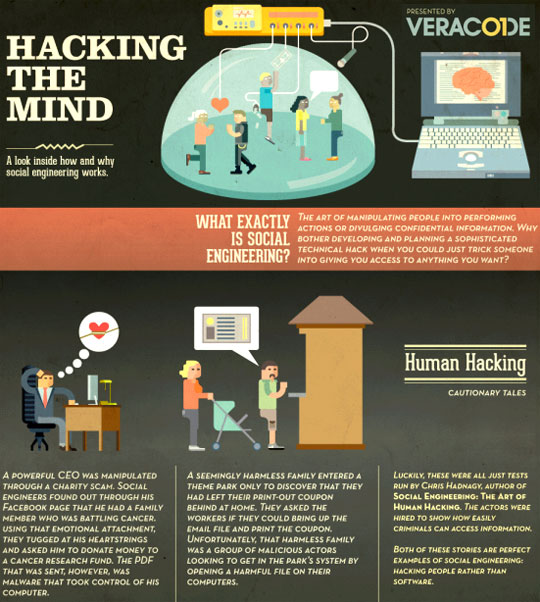
Even though security issues are always run of the mill, social media seems to be attracting them a lot more than other entities and corporations on the internet. As the connected world progresses further and further into tech powered socialization, social media takes on an ever increasing important role.
Not only is it the platform used for conversations, it is also a platform where individuals create online identities and then represent them through their various activities online. Needless to say,
[quote]It is vital that social media be dealt with in a way that ensures both privacy and security for its users.[/quote]
But in order for that to happen, here are ten social media security problems that will have to be dealt with in 2013.
1. Password Management
It may seem like a problem that has been overcome but it really hasn’t. Countless people still lose their various social media accounts to hackers who manage to crack passwords. A good example of a password security scandal is last year’s LinkedIn Password leaks.
2. Age Limits
The fact is that age is no longer any sort of a hindrance when it comes to owning a social media account. Facebook claims that you need to be at least 13 in order to have an account, but there are ways to get around that. Of course, this means that not all users are responsible adults and can be a threat to security.
3. Social Engineering

Since all of our information, especially work related is posted on sites like Facebook and LinkedIn, individuals bent on harm can tap into these resources and attempt to get their hands on some company/business related secrets. (The full size Social Engineering Infographic available here.)
4. BYOD
Simply bringing your device to work and then accessing social media means that you are potentially setting yourself up for security problems. These may be due to your actual employers or co-workers who will attempt to use social media to harass or spy on you.
5. Complex Malware
The whole concept of precision targeted malware should be enough to get any social media user uneasy. Social networks are in no way immune to such attacks and can face potential harm if they fail to up their security in 2013.
6. Privacy Laws
At the moment there seem to be no real privacy laws in place ensuring that social media users are guaranteed safety from prying eyes in all conditions; including those of government agencies and companies. This is another issue which must be dealt with sooner or later.
7. MalApps
Since apps are all the rage, there are a multitude of social media apps available. Not all of them are truly certified and there are actually designed malapps attempting to break into your accounts and steal important details.
8. Phishing Scams
Just like malapps, the amount of people getting hit with phishing scams is pretty high (over 50% of Internet users get at least one phishing email per day). Through these scams many people end up divulging important information such as credit card details, usernames, email passwords. If you are concerned about phishing issues have a look at the Anti-Phishing Working Group’s website for more info.
Here is a great Infographic from Lifelock about the state of phishing today:

9. Social Media Privacy Settings
Privacy and hence security should always be in control of the users themselves. But when social media sites change their privacy policies too frequently, users get left behind on the memos and security related confusion arises. Especially Facebook has been in the news a lot related to their complex privacy issues.
10. Encryption
Though major social media sites like Google+ and Twitter have enabled encrypted browsing by default, others still need to do so and have left the option for manual adjustments.
What About You?
Have you secured yourself, or been a victim to any of these security problems with your social accounts? Let us know in the comments.
[Image Sources – main: Author; Infographics: Veracode, LifeLock]
Jessica is a tech writer for MobiStealth and can be contacted @jcarol429. She writes about various social media and privacy issues.
Comments are closed.